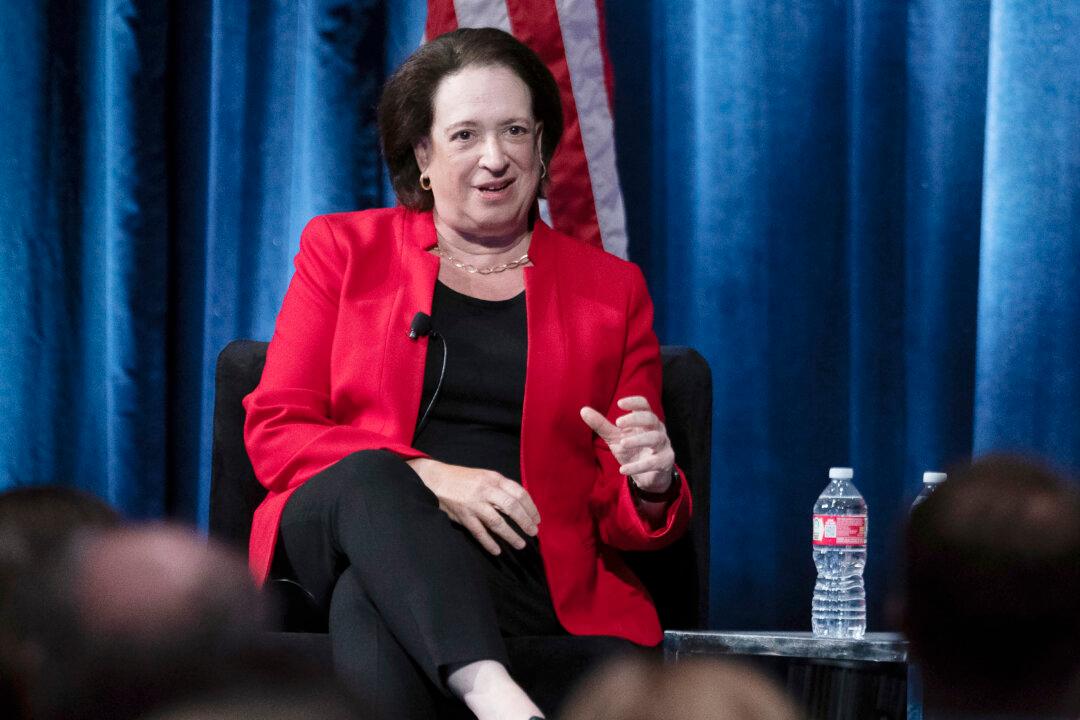Supreme Court Justice Elena Kagan on July 25 called for enforcement of an ethics code adopted in 2023 by justices.
All nine Supreme Court justices in 2023 agreed to adopt the court’s first-ever ethics code. The set of rules touches on when justices should recuse from cases and how justices should decide on outside activities. It also emphasizes that justices should not engage in political activity such as making speeches for political organizations or candidates.





